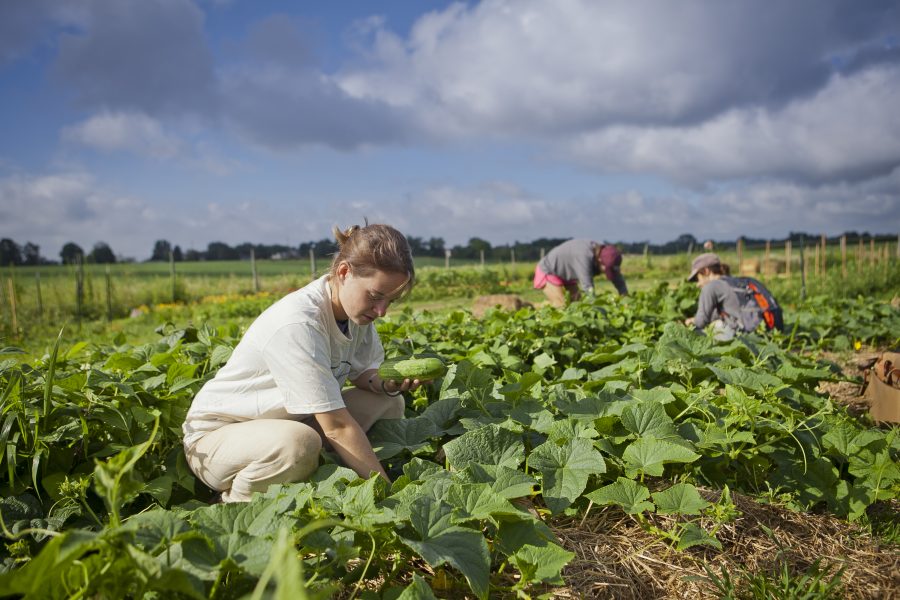Lafayette College’s one and only farm has been doubling down on harvesting the food that helps serve campus dining halls.
Logging almost 40 hours less of manual labor than in 2015, LaFarm produced 2,225 pounds more of food last year, almost twice the previous.
With 941.5 hours of manual labor logged, the farm sent 5,225 pounds of food to dining halls and the great Easton area.
This solar-powered farm partners with classes from biology, geology, environmental science, engineering and other departments, as well as volunteers from Greek life and community groups.
LaFarm released their annual report via Instagram (@lafarm_annual_report), posting that the 3,000 pounds of food harvested equates to more than 12,000 servings of food.
With an increase from seven to 13 market days this year selling produce from 42 different harvests, LaFarm manager Sarah Edmonds said more produce meant that the food found more markets. Forty-two separate harvests were sold on 13 market days 2016, up from seven days the year before.
Fourteen hourly workers, two EXCEL Scholars and three volunteers contributed the 941.5 hours logged with LaFarm over the past year. The harvest spike was in part made possible because of a change in the farm’s funding.
LaFarm used to be funded by grants, but has been moved under the umbrella of the office of sustainability, now receiving permanent funding with a secured spot in the college. The expenses for 2016 totaled about $18,300.
“LaFarm is now more firmly established within the school community…and knowing that you have the funding and that it’s secure…will allow us to grow,” said director of sustainability Marie Fechik-Kirk, who inaugurated the position in November.
LaFarm’s five-year expansion plan will only add to LaFarm’s capacity, Edmonds said.
She added that her hope in the meantime is “that the office [of sustainability], as it gets established, will partner with already established nonprofits that can show us how our impact is helping their mission [of] sustainability in the community and cutting down on food waste.”
LaFarm already works with Vegetables In Community, a Lafayette food distribution initiative, and works parallel to efforts from the Keller Foundation. It also donates food to Second Harvest Food Bank, the Easton Hunger Coalition and the Lehigh Valley Food Respect and Recovery Volunteers. Every year the farm has increased donations, with more than 1,300 pounds of produce going out into the community in the past year.
With a record-breaking year like this, LaFarm hopes to do more in the coming years. Fechik-Kirk said the office of sustainability is working on steps toward finalizing expansion plans.
“[We have to] get all the ducks in the line before an official announcement [of those plans],” she said.
Over the next few years, land adjacent to LaFarm might be surveyed for a physical expansion to over three acres depending on the resources that become available to the farm.





















































































































